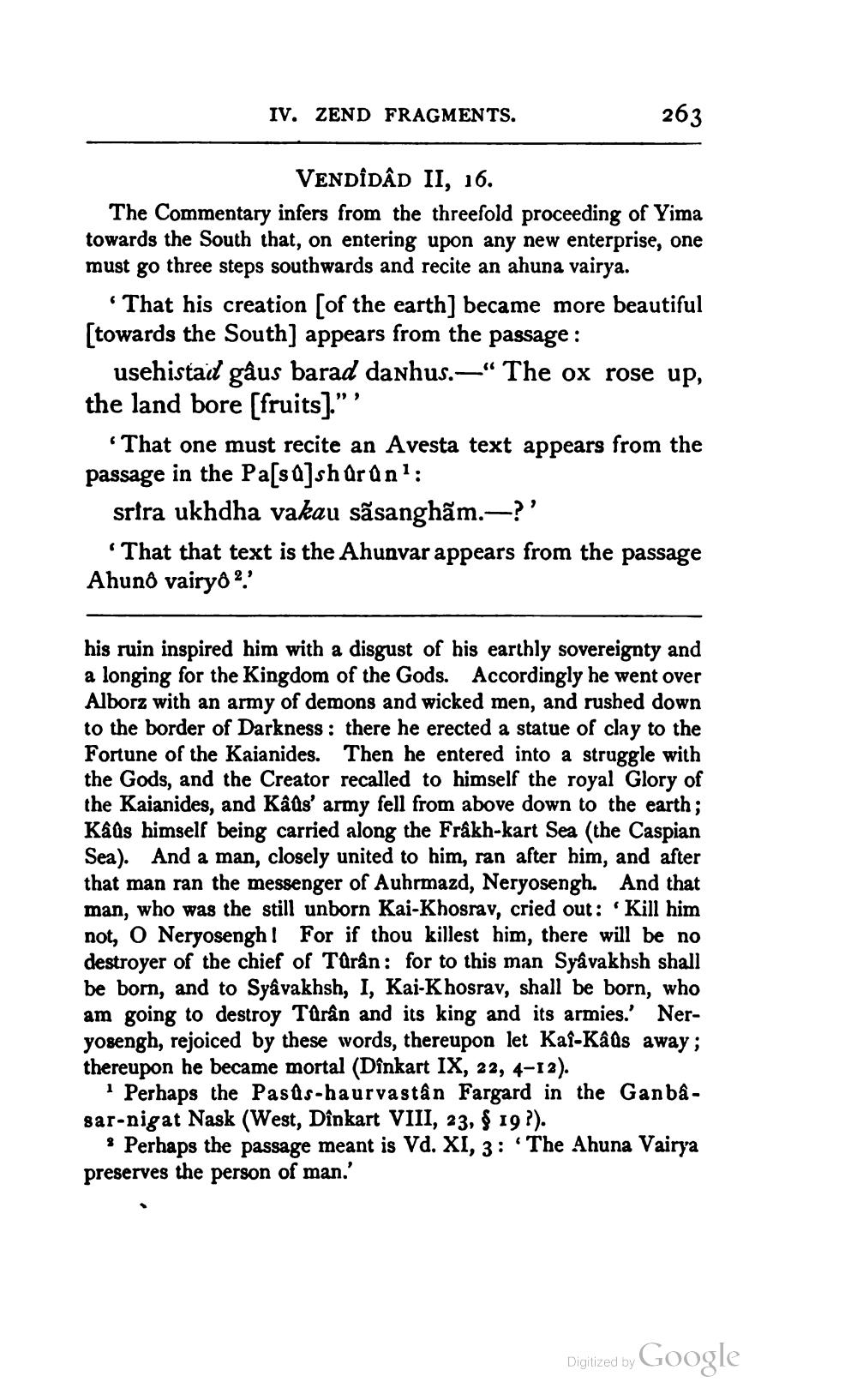________________
IV. ZEND FRAGMENTS.
263
VENDIDAD II, 16. The Commentary infers from the threefold proceeding of Yima towards the South that, on entering upon any new enterprise, one must go three steps southwards and recite an ahuna vairya.
That his creation [of the earth) became more beautiful [towards the South] appears from the passage:
usehistad gâus barad danhus.—“The ox rose up, the land bore [fruits]." !
"That one must recite an Avesta text appears from the passage in the Pa[sa]shûr û n':
srira ukhdha vakau sãsanghãm.—?' 'That that text is the Ahunvar appears from the passage Ahunð vairyo??
his ruin inspired him with a disgust of his earthly sovereignty and a longing for the Kingdom of the Gods. Accordingly he went over Alborz with an army of demons and wicked men, and rushed down to the border of Darkness : there he erected a statue of clay to the Fortune of the Kaianides. Then he entered into a struggle with the Gods, and the Creator recalled to himself the royal Glory of the Kaianides, and Kaus' army fell from above down to the earth; Kads himself being carried along the Fråkh-kart Sea (the Caspian Sea). And a man, closely united to him, ran after him, and after that man ran the messenger of Auhrmazd, Neryosengh. And that man, who was the still unborn Kai-Khosrav, cried out: Kill him not, O Neryosengh! For if thou killest him, there will be no destroyer of the chief of Tūrân: for to this man Syâvakhsh shall be born, and to Syâvakhsh, I, Kai-Khosrav, shall be born, who am going to destroy Türån and its king and its armies.' Neryosengh, rejoiced by these words, thereupon let Kai-Kâds away; thereupon he became mortal (Dînkart IX, 22, 4-12).
Perhaps the Pasûs-haurvastân Fargard in the Ganba - sar-nigat Nask (West, Dînkart VIII, 23, § 197).
. Perhaps the passage meant is Vd. XI, 3: The Ahuna Vairya preserves the person of man.'
Digitized by Google




